We are sure that your ticking dog landed you here! So you’re facing aggressive dog problems and need some expert advice to control that bomb!! Then let Buckaroos 360 help! Aggression is the number one cause for pet parents to consult professionals. If the problem grows then there is a high chance of the dog being returned to its shelter. So it’s advised to intervene early in matters of dog aggression.
If you are looking for professional dog aggression training in Oklahoma then Buckaroos 360 can become your best retreat!!
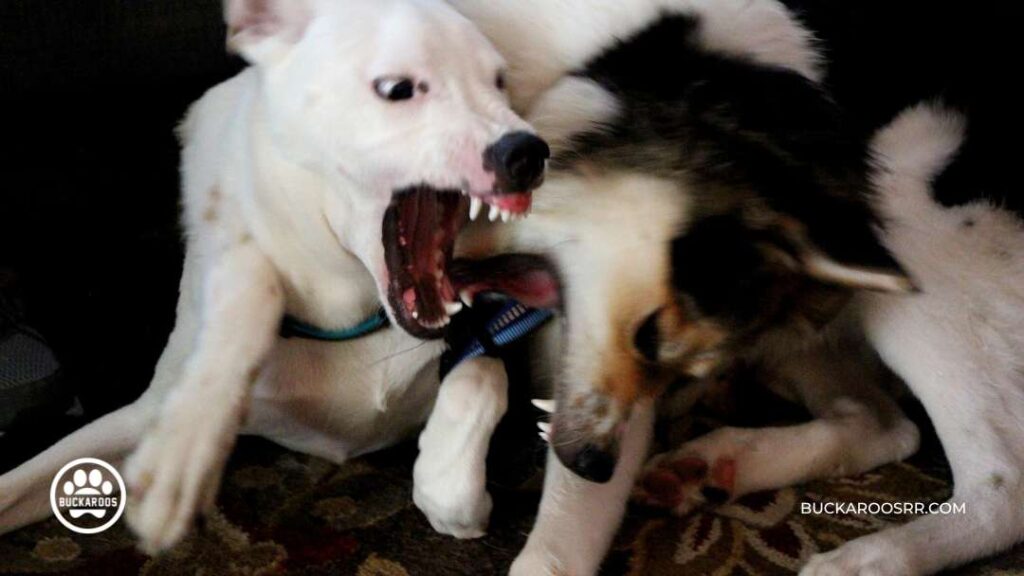
Dog Reactivity vs. Dog Aggression
We do know what aggression means but sometimes it often gets confused with reactivity. Your dog’s high reactivity cannot be equated to aggression. Dogs born in shelters who lack socialization and self-control often develop heightened emotions which can lead to reactivity. They react with intense emotions to any or every situation.
Both dog reactivity and aggression are caused due to environmental, social, and psychological triggers but if a dog wishes to hurt or harm someone then it is categorized under dog aggression. Eg- A leash might trigger a reactive dog and he may try to flee but an aggressive dog will attack instead.
So what is dog aggressive behavior and how can you understand if your dog is aggressive or not? This blog will surely help you reach an appropriate conclusion.
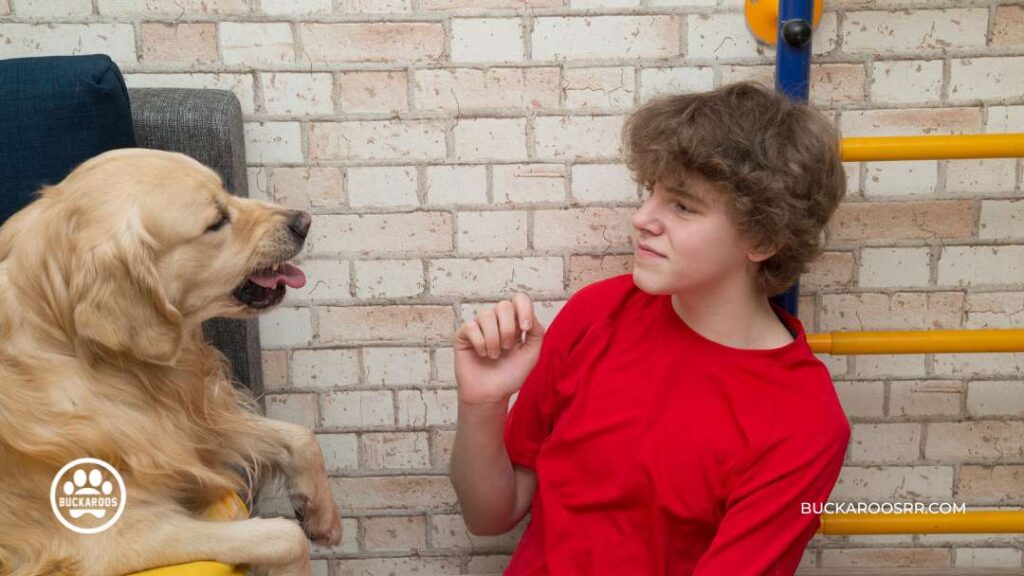
Signs of Dog Aggression
The body language of your dog can easily help us understand its aggressive tendencies. There are notable behaviors your dog will engage in when he is triggered. It’s best to maintain distance from them until they completely calm down. Some warning signs of an aggressive dog include-
- Stiff Body
- Lowered Tail- usually between both legs
- Ears backed
- Intense Eyes- more white can be seen
- Erect Body Hair
- Growls and Barks
- Protruding Teeth
- Repeated biting that is a bit intense
- Closed Mouth with lips over teeth
- Increased Breathing
These are 10 tell-tell signs that your dog is aggressive. They can only be called aggressive if they engage in this behavior every time a trigger is present.
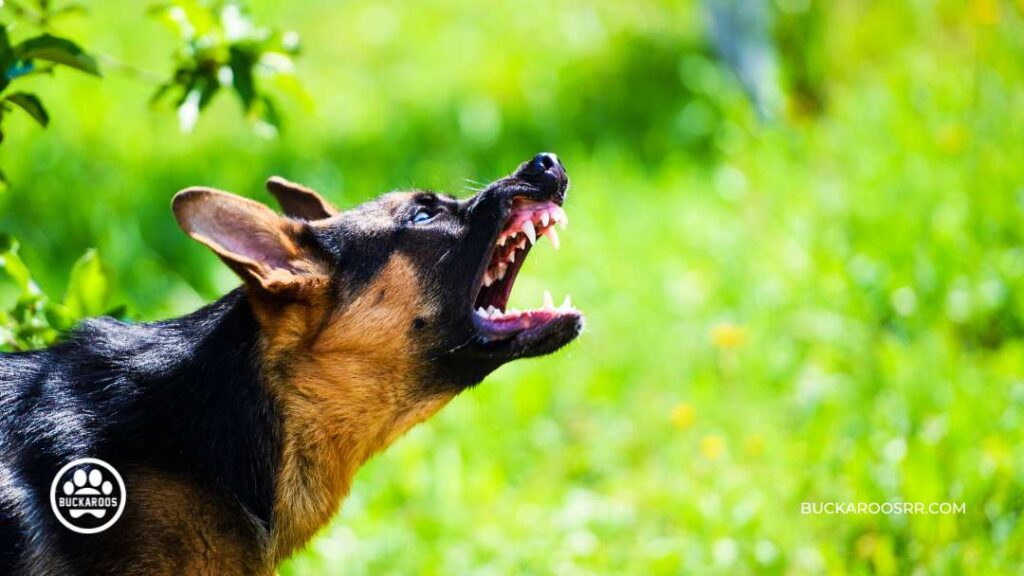
Triggers of Dog Aggression
Aggression in dogs can be elicited through various triggers. When you know the cause behind your dog’s illogical behavior, treating it can become much more convenient. With consistent observation and support from professionals, identifying these triggers would become easy.
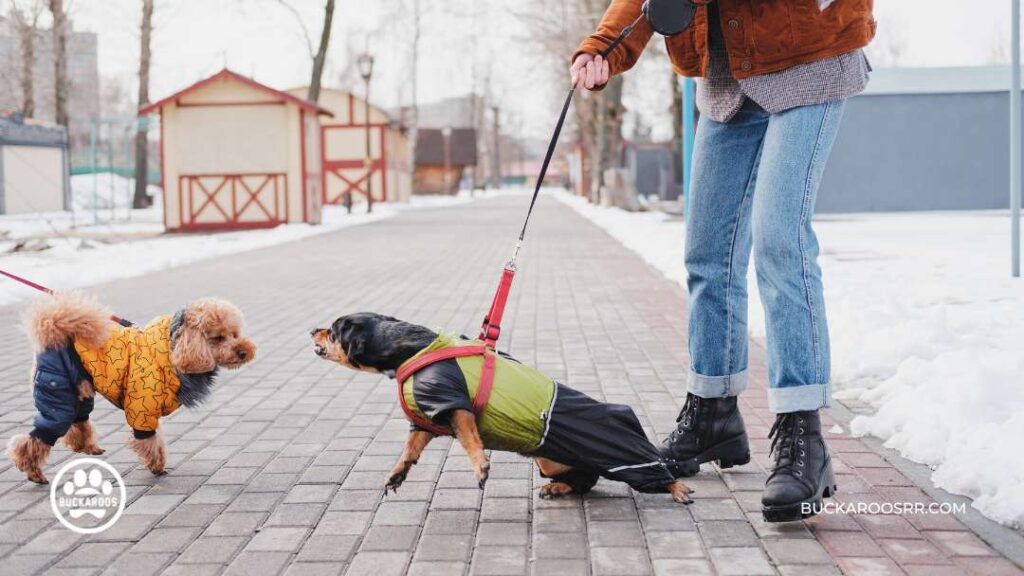
Fear Aggression in Dogs
Fear can be a leading cause of aggression as it heightens the emotional state of your dog. It activates their fight or flight hormone and if they choose to fight, this can lead to aggression. Fear-induced aggression can be hard to control as the dog might not give out signs of action before sprawling on or biting someone. So if you know your dog is fearful of someone, or something, then it’s best to avoid bringing such triggers before them.
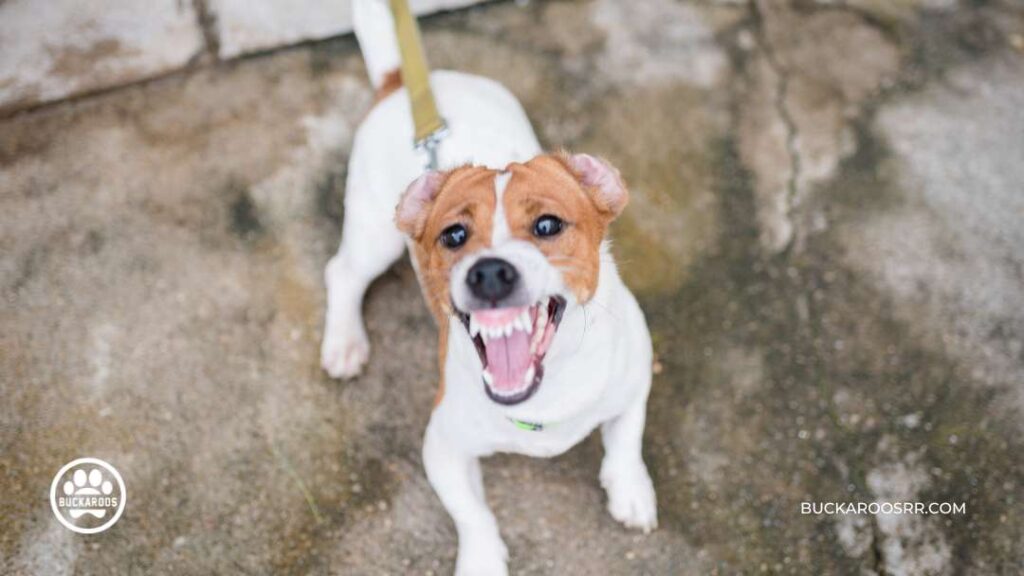
Resource Guarding in Dogs
Another reason your dog might show aggression is when they are engaged in resource guarding. From a biological and ancestral perspective, dogs learn resource guarding as a survival instinct. But within homes where they are cared for, such tendencies aren’t required.
It’s best to let them guard their belongings until you opt for professional training. It’s also required to keep children and guests out of your dog’s life.
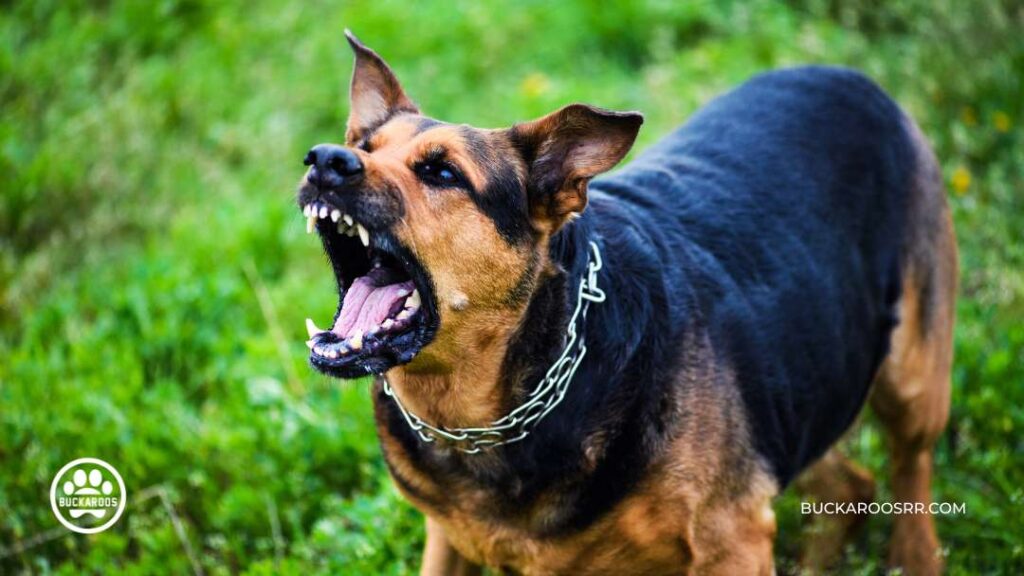
Pain Aggression in Dogs
If your dog has recently gone through an injury or operation then anger can be induced due to internal pain. Dogs aren’t able to express their pain verbally like humans and so they adopt passive-aggressive ways to let it out. Your dog might ween, growl, and mouth on things to ease the discomfort caused by the pain. Sometimes during severe problems like internal bleeding, tumors, and arthritis, the dog might become too aggressive due to extreme pain.
If you notice dog aggression without any external reasons, it’s best to consult a vet!!
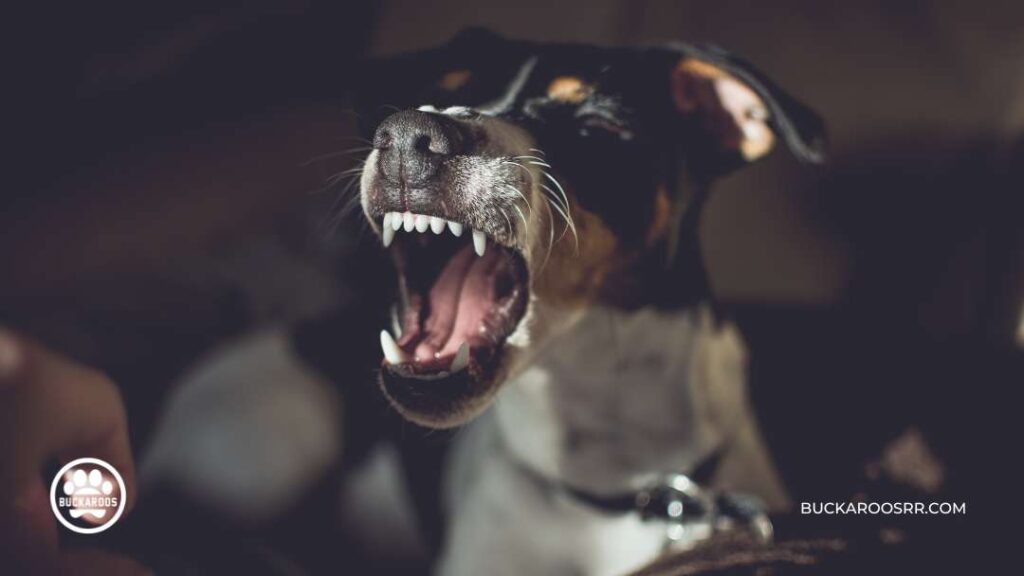
Territorial Aggression in Dogs
Every pet parent wants their dog to be a little aggressive about who enters their home! Visits of unwanted strangers, small children, or other animals can trigger aggression in dogs. They might show the above-mentioned signs of aggression if they perceive any threat. Small amounts of territorial aggression are necessary, but excess of it can be dangerous.
So it’s best to opt for professional help in such situations. We at Buckaroos have trained experts in aggression management and can help you very well.
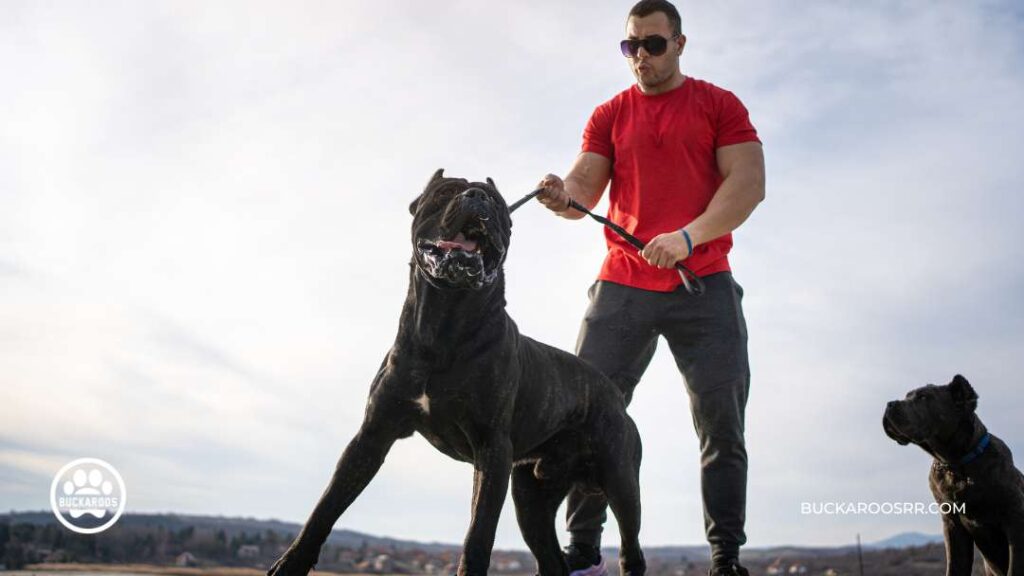
Dog Aggression Training in Oklahoma
You might have landed in a situation wherein your dog isn’t ready to listen to anyone. So this is the right time to take your dog for professional training. We at Buckaroos 360 offer special dog aggression training in Oklahoma. We focus on reducing their reactions to triggers, then changing their association with triggers and finally reinforcing the learned behavior. We employ a complex behavior management technique to calm down your dog’s aggressive tendencies.
Some well-known dog aggression training techniques work wonders. Below are a few notable ones from the lot.
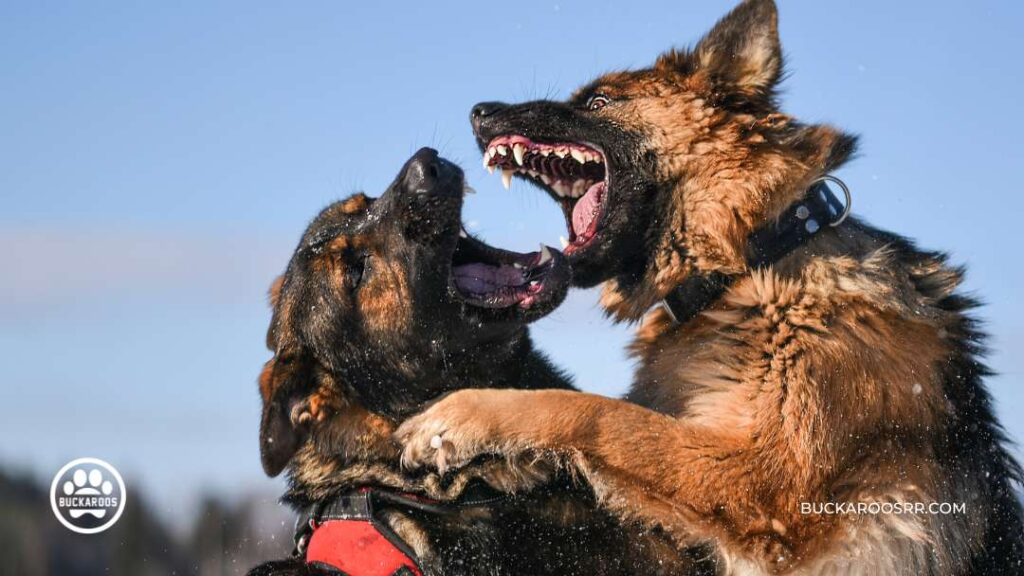
Positive Reinforcement For Dog Aggression
In this method, we pair a positive outcome with an aversive situation like doorbell ringing, strangers visiting, resource guarding, etc. Those situations that trigger your dog can be made positive by associating an appealing reward with it, like treats, walks, long drives, etc. This makes the situation less threatening.
It is advised to conduct this act only after consulting a dog behavior specialist!!
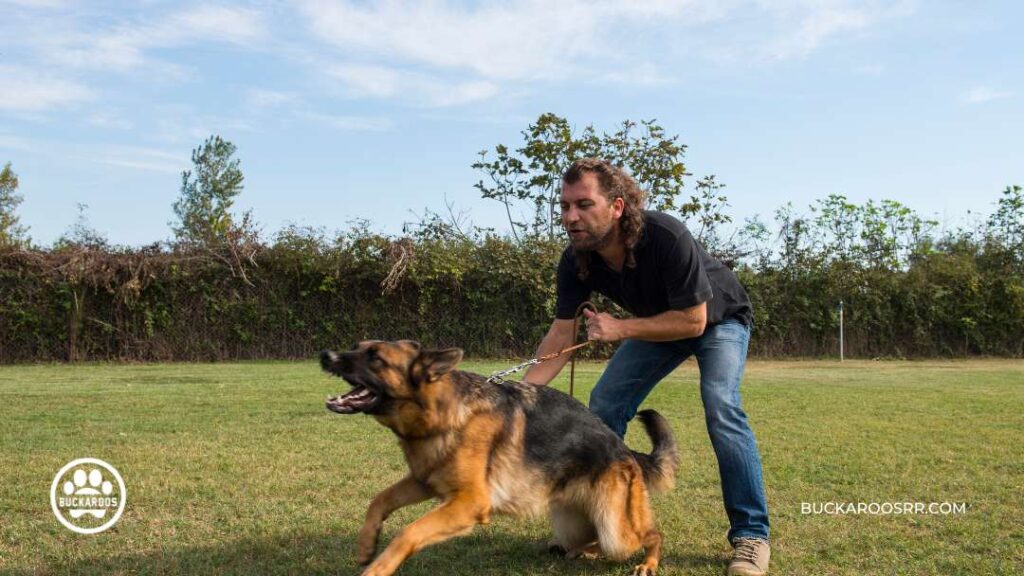
Desensitization For Dog Aggression
In this method, the dog is exposed to the triggering stimulus in small doses that aren’t triggering. The amount of the dose is increased gradually until they can control their aggressive impulses toward the stimuli. The dog becomes insensitive to the stimuli and doesn’t react aggressively toward them. Often desensitization and counter-conditioning are used hand-in-hand to change aggressive dog behavior.
This activity can only be performed under guidance or it might result in adverse things.
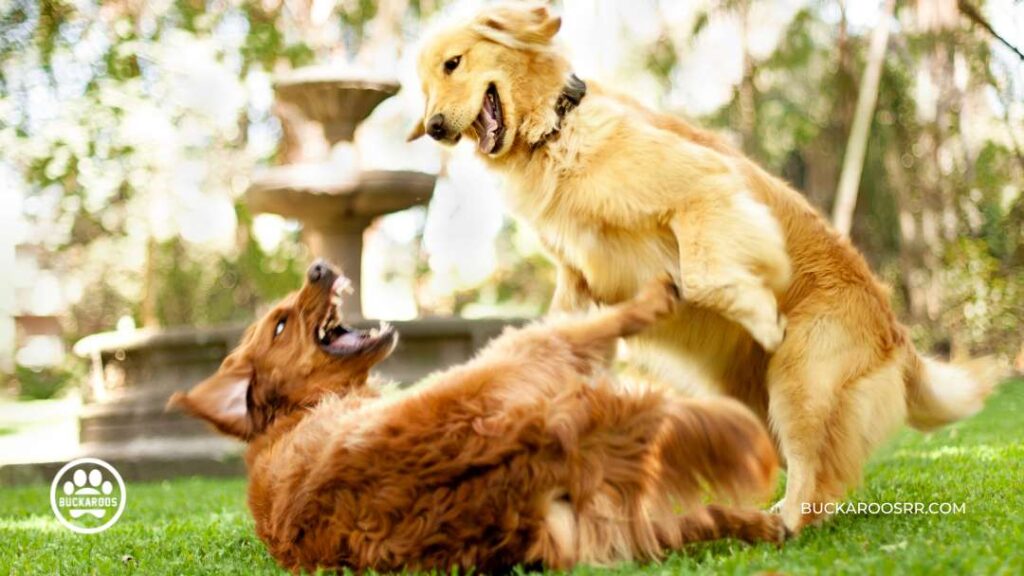
Avoid Punishment For Dog Aggression
It should be noted that punishing your dog for showing aggression can increase their hostile emotions towards the stimulus. They might even turn hostile towards you to protect themselves from the punishment pain. The punishment can stop the dog from behaving a certain way, but it won’t bring in the desired behavior. So it should be avoided at all times.
Simple punishment methods that can be employed instead of scolding, beating, or keeping them on a leash for hours include-
- Neglect them for a short period
- Take away their essentials
- Avoid praising or patting them
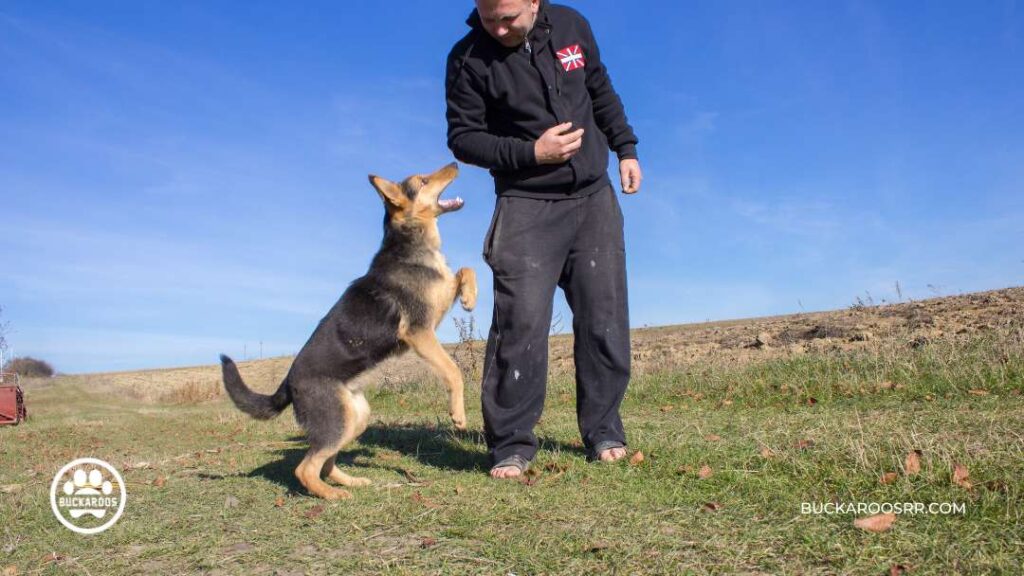
Tools to Help with Dog Aggression
Until you successfully train your dog it’s necessary to control their aggression to avoid hurting others or yourself. So here are some basic tools you can use during training to help you out. They look like punishment methods but are useful in training.
Prong Collars
Muzzles
Dog Gates
Head Halters, etc
To Conclude
When you bring a new pet home and notice aggressive tendencies, it’s best to start training them as early as possible. With early intervention and consistent training, you can get rid of the problem much more quickly. In case of aggression, it’s best to consult a behaviorist rather than self-train your dog.
We at Buckaroos 360 can help you train your aggressive dog. We offer the best aggressive training in Oklahoma and you can opt for your dog by visiting us today!! Hope to see you there!! Watch the video on why dogs become aggressive.





